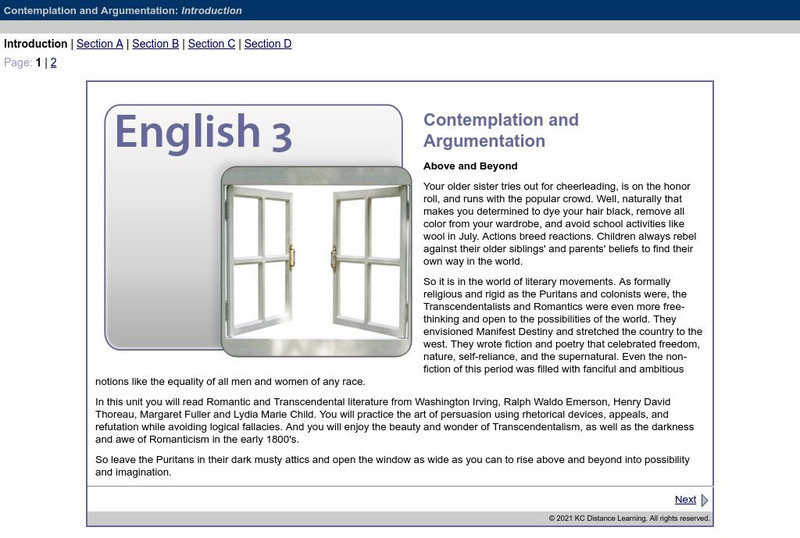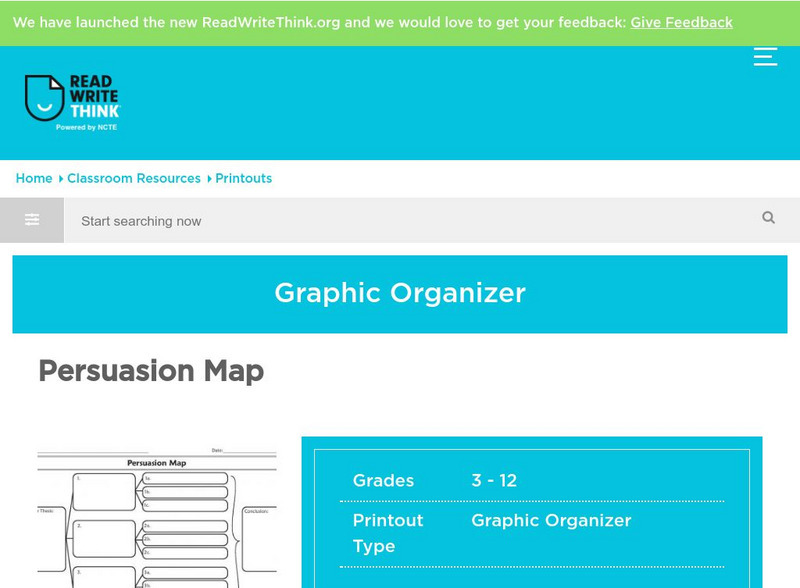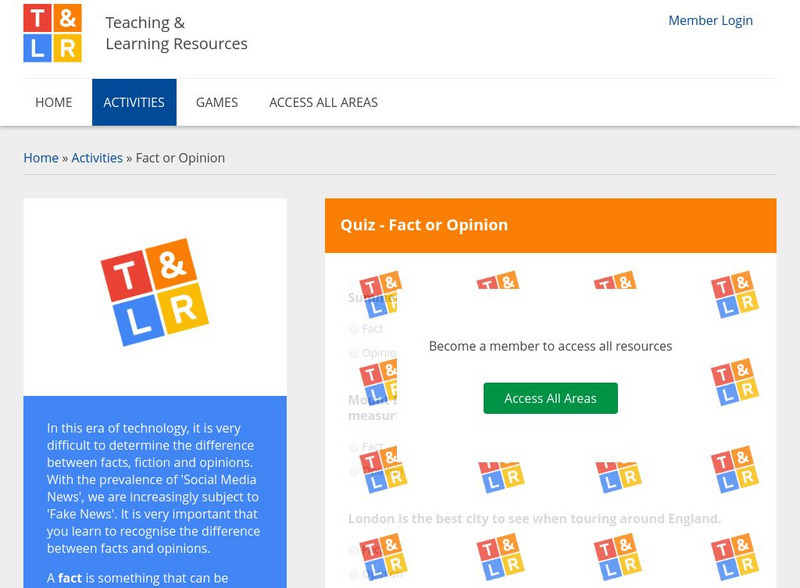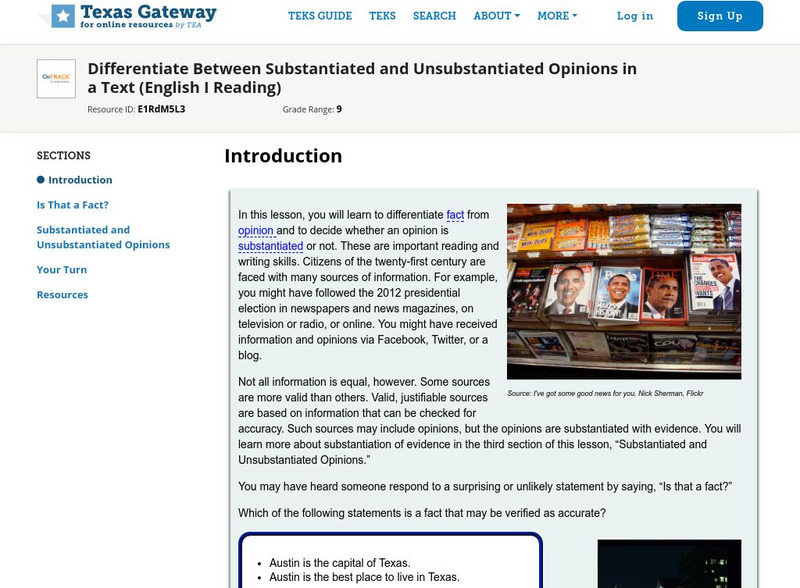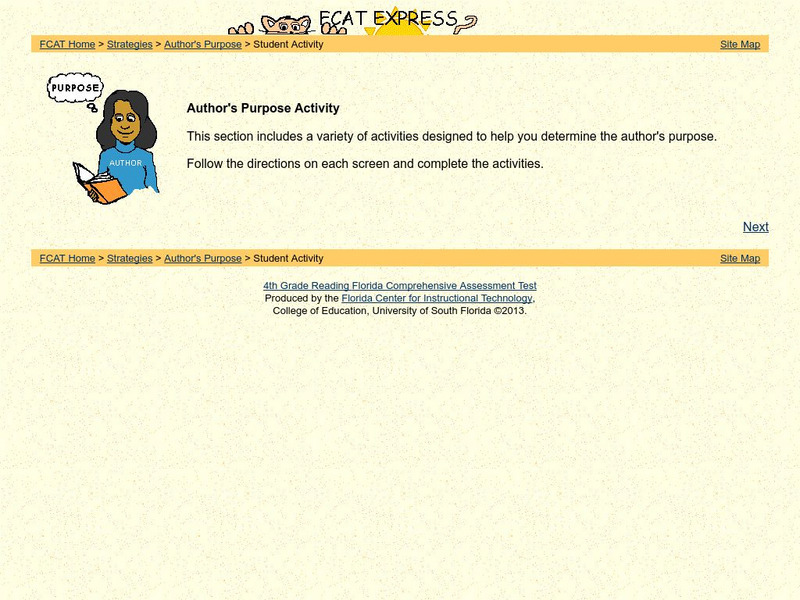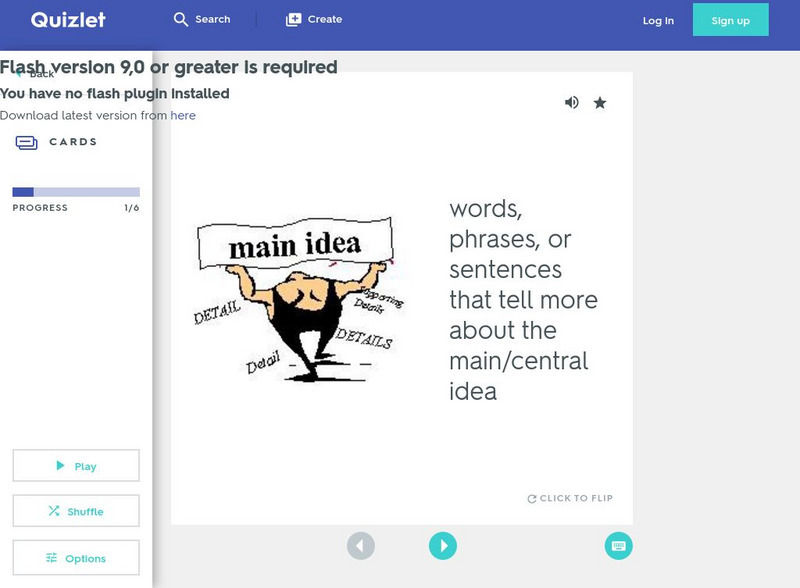New York State Education Department
TASC Transition Curriculum: Workshop 11
You'll C-E-R a difference in classroom achievement after using a helpful lesson. Designed for economics, civics, government, and US history classes, participants practice using the CER model to craft arguments about primary and secondary...
EngageNY
TASC Transition Curriculum: Workshop 12
How can opinions slant facts? Workshop participants learn how to examine primary and secondary sources and identify the author's point of view. They also examine how visual art impacts the meaning and rhetoric of sources. Full of...
Alabama Learning Exchange
Alex: Newspapers: Facts and Opinions
In order to sharpen a student's understanding of the differences between facts and opinions, this lesson incorporates both the close reading of a newspaper and the writing of a factual article and a letter to the editor.
Florida Center for Reading Research
Florida Center for Reading Research: Text Analysis: Matter of Fact or Opinion [Pdf]
A lesson plan in which students work with a partner to write facts and opinions on different word cards. Materials are included.
Better Lesson
Better Lesson: Identifying and Writing Opinions About Clouds Using Clue Words
It is important to teach students the difference between facts and opinions. This is the groundwork for getting students to think critically when analyzing a piece of text. This instructional activity will help to lay the foundation for...
Other
Grade 1 Informative Writing Lessons
Authored by the Tsehai Russell and Della Wright, CLR fellows, this resource provides a 5-day unit of informative writing lessons. Focus lessons related to facts and opinions and paragraph writing. This series is supported by the Academic...
Alabama Learning Exchange
Alex: Fact vs. Opinion
This lesson is a hands-on way for middle schoolers to learn how to discern between fact and opinion. This is an important skill for citizenship in that citizens should be informed about what is happening in their communities and should...
Better Lesson
Better Lesson: Writing an Opinion Based on Facts From a Text
Students will plan a paragraph that states their opinion and cites evidence to justify their opinion about an informational text. This lesson uses biographies since students can easily be able to write down factual information from the...
Texas Education Agency
Texas Gateway: Write a Persuasive Text That Supports a Position
[Accessible by TX Educators. Free Registration/Login Required] You will learn to write a persuasive text that responds to the views of others by using evidence that differentiates between fact and opinion to support your viewpoint.
Department of Defense
Do Dea: Contemplation and Argumentation
In this self-guided unit, you will read Romantic and Transcendental literature and you will practice the art of persuasion using rhetorical devices, appeals, and refutation while avoiding logical fallacies. By the end of the unit, you...
Polk Brothers Foundation Center for Urban Education at DePaul University
De Paul University: Center for Urban Education: Comprehensive Questions: Nonfiction [Pdf]
Questions are provided to help students determine the main idea, topic, and fact versus opinion of a nonfiction piece. Students are prompted to write a summary of an informational text.
ReadWriteThink
Read Write Think: Persuasion Map
A printable graphic organizer for students to use when writing on opinion or persuasive essay. Directions on how to use this type of graphic organizer as well as lists of teaching ideas, lesson plans, and other resources are also...
Other
Teaching and Learning Resources for Ks2 (Ages 7 12):literacy: Fact or Opinion?
This is a 10 question, self-scoring quiz on separating fact from opinion. Students read a sentence and select "fact" or "opinion" from the drop-down menu.
Texas Education Agency
Texas Gateway: Differentiate Between Substantiated and Unsubstantiated Opinions
[Accessible by TX Educators. Free Registration/Login Required] In this lesson, you will learn to differentiate fact from opinion and to decide whether an opinion is substantiated or not. These are important reading and writing skills.
CommonLit
Common Lit: "The Cost of Prison in Dollars and Lives" by Michael P. Jacobson
In this opinion piece, Michael Jacobson discusses juvenile justice and how young offenders should be treated in comparison to adult offenders. [Free account registration required for specific tools.]
University of South Florida
University of South Florida: Fcat Express: Author's Purpose Activity
Practice identifying author's purpose by recognizing the purpose in titles, understanding the difference between fact and opinion, and identifying the purpose of various forms of writing.
Writing Fix
Writing Fix: The Wacky Smear Campaign
Inspired by Barry Lane's book 51 Wacky We-Search Reports, in this cross-curricular lesson plan students learn how to summarize properly.
CommonLit
Common Lit: "The Limits of Empathy" by David Brooks
In this opinion piece, David Brooks discusses his views on empathy and whether or not it influences our actions. As you read, identify the claims David Brooks makes about empathy. [Free account registration required for specific tools.]
ArtsNow
Arts Now Learning: My Sound Is the Best! [Pdf]
In this lesson, students will use music as an impetus for stating and supporting opinions. They will compose an opinion poster based on a narrative about a train using percussion instruments. This will involve group work which can lead...
Quizlet
Quizlet: Types of Details: Flashcards
This is a set of interactive flashcards defining words that have to do with details in writing: supporting details, facts, opinion, examples, anecdotes, and statistics.
CommonLit
Common Lit: "What Adolescents Miss by Grow Up in Cyberspace" by Brent Staples
In this informational text, Brent Staples explores how the Internet may be impacting teenagers' development. As you read, take notes on what teenagers use the Internet for and how it impacts their development. [Free account registration...
CommonLit
Common Lit: "Life Isn't Fair Deal With It" by Mike Myatt
A learning module that begins with "Life Isn't Fair-- Deal With It" by Mike Myatt, accompanied by guided reading questions, assessment questions, and discussion questions. The text can be printed as a PDF or assigned online through free...
CommonLit
Common Lit: "Should Girls Be Allowed to Play High School Football?" by Josh Bean
A learning module that begins with "Should Girls Be Allowed to Play High School Football?" by Josh Bean, accompanied by guided reading questions, assessment questions, and discussion questions. The text can be printed as a PDF or...
Better Lesson
Better Lesson: Finding the Author's Purpose
What is autism? How does it affect behavior? Learners will find evidence of the author's tone or purpose for writing the article, as well as hints that show evidence of opinion. Includes a video clip from the movie "Rainman", and an...



![Florida Center for Reading Research: Text Analysis: Matter of Fact or Opinion [Pdf] Lesson Plan Florida Center for Reading Research: Text Analysis: Matter of Fact or Opinion [Pdf] Lesson Plan](https://content.lessonplanet.com/knovation/original/509093-adc405a5910df5a982823c4579441be2.jpg?1661786984)





